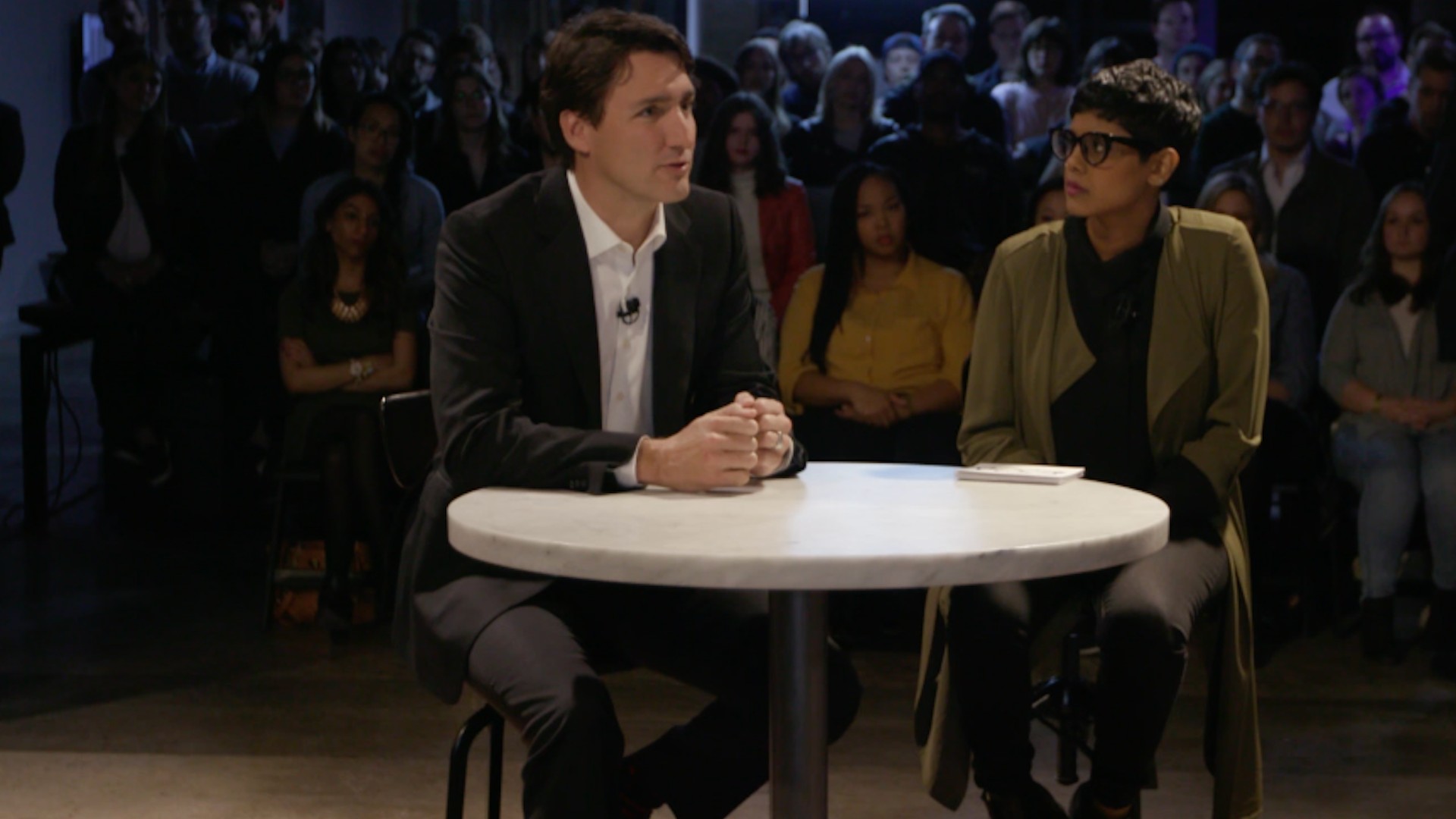Image sources: Wikipedia Commons
Canada’s adventures in international free trade are always a delightful spectacle. Justin Trudeau is one of the few world leaders still trumpeting the pre-2016 dream that everything will be hunky dory in the mad world of global politics if we can strike up a few more free trade deals. Cry havoc, and let slip the dogs of unrestricted transnational capital! It’s a show he’s taken on the road a few times now since last year’s Brexit/Trump affairs, and now he’s currently touring it in China.Opinions are mixed on how it’s going. On the one hand, Paul Wells writes in Maclean’s that the Trudeau administration appears to be soberly considering the feedback it got on its cross-country consultations about opening up free trade with China. Canadians want access to the Chinese market, but they have a number of concerns: not only about the country’s human rights record, but also its unscrupulous pursuit of global economic power. Trudeau and co. understand the stakes involved in balancing the country’s chequebook against the country’s values, so they are diligently and delicately trying to work out an agreement that may still be forthcoming—despite the prime minister having already left Beijing.On the other hand, John Ivison writes in the National Post that the Canadian government was out of its league getting into this and that Trudeau has already effectively blown it. The Chinese market was always going to be a tough nut to crack, but it is that much harder as America’s global hegemony wanes and China aims to fill the void. The Middle Kingdom has no interest in playing by the old rulebook of the liberal world order. Canada’s apparent assumptions to the contrary are going to lead us, at best, nowhere—and at worst, into a Faustian bargain with Chinese President Xi Jinping.I am neither an expert on the mechanics of international trade negotiations nor on the geopolitical ambitions of the People’s Republic of China, so I’m not going to pretend I know whether Wells or Ivison is closer to the mark. But I feel I do know enough to do a spit take of my own when Justin Trudeau says, supposedly with a straight face, that a free trade deal with China will help defuse the reactionary populist politics in vogue around the world. What?It is a talking point that Trudeau and his neoliberal fellow travellers have invoked before. While there may have been some structural discomfort involved in the opening of domestic markets to foreign capital (and vice versa), overall the outcome of liberal trade is an inevitable win for everyone involved. Goods and services cross borders more easily (and cheaply) and freer migration fosters a deeper appreciation for human diversity. Corporate greed might make things look a little lopsided, but it’s nothing that modest state redistribution of the quintessentially Canadian variety can’t sort out. It is a very nice story but, as we now know, it leaves out a few loose ends. Whenever newly unfettered capital starts freely crossing borders, it is usually accompanied by a cast of somewhat less savory characters: community dislocation, deindustrialization, declining environmental and labour regulations, degraded national sovereignty, and the occasional financial meltdown. (For what it’s worth, Trudeau deserves credit for making more progressive environmental, labour, and gender regulations a sticking point in negotiations.)Free trade might be a win-win on paper for the countries involved, but within those countries themselves it’s very often a win-lose arrangement for the rich and the non-rich, respectively. In other words, it tends to create its own problems, one of which appears to be right-wing, nationalist reaction. (It’s a convention to just call this ‘populism’, which is sort of true, but also sort of not true, and something we should probably talk about later.)In the case of Chinese-Canadian trade in particular, there are reasons to suspect that even a successful bilateral free trade agreement might do more to inflame reactionary populism at home than put it out. Wells observes that Canadian access to the Chinese market also entails China’s further access to the Canadian market. This risks further inflating urban real estate values (particularly on the west coast), as well as hollowing out communities based around agriculture and manufacturing. And as a general rule, people who lose a good job and/or get priced out of their home tend to become rather politically agitated.It’s not clear whether or not the prime minister and his team genuinely believe more free trade will fix the problems it simultaneously causes, or if this is just a reflexive talking point he threw to the media after a long day of trade talks that amounted to fruitlessly banging his head against a wall in Beijing.Of course, this will all be moot if Trudeau does, in fact, fail to successfully lay the groundwork for trade negotiations with the Chinese. Who knows! The only real certainty is that the Justin Trudeau International Trade show can and must go on.Follow Drew Brown on Twitter.
It is a very nice story but, as we now know, it leaves out a few loose ends. Whenever newly unfettered capital starts freely crossing borders, it is usually accompanied by a cast of somewhat less savory characters: community dislocation, deindustrialization, declining environmental and labour regulations, degraded national sovereignty, and the occasional financial meltdown. (For what it’s worth, Trudeau deserves credit for making more progressive environmental, labour, and gender regulations a sticking point in negotiations.)Free trade might be a win-win on paper for the countries involved, but within those countries themselves it’s very often a win-lose arrangement for the rich and the non-rich, respectively. In other words, it tends to create its own problems, one of which appears to be right-wing, nationalist reaction. (It’s a convention to just call this ‘populism’, which is sort of true, but also sort of not true, and something we should probably talk about later.)In the case of Chinese-Canadian trade in particular, there are reasons to suspect that even a successful bilateral free trade agreement might do more to inflame reactionary populism at home than put it out. Wells observes that Canadian access to the Chinese market also entails China’s further access to the Canadian market. This risks further inflating urban real estate values (particularly on the west coast), as well as hollowing out communities based around agriculture and manufacturing. And as a general rule, people who lose a good job and/or get priced out of their home tend to become rather politically agitated.It’s not clear whether or not the prime minister and his team genuinely believe more free trade will fix the problems it simultaneously causes, or if this is just a reflexive talking point he threw to the media after a long day of trade talks that amounted to fruitlessly banging his head against a wall in Beijing.Of course, this will all be moot if Trudeau does, in fact, fail to successfully lay the groundwork for trade negotiations with the Chinese. Who knows! The only real certainty is that the Justin Trudeau International Trade show can and must go on.Follow Drew Brown on Twitter.
Advertisement
Advertisement

